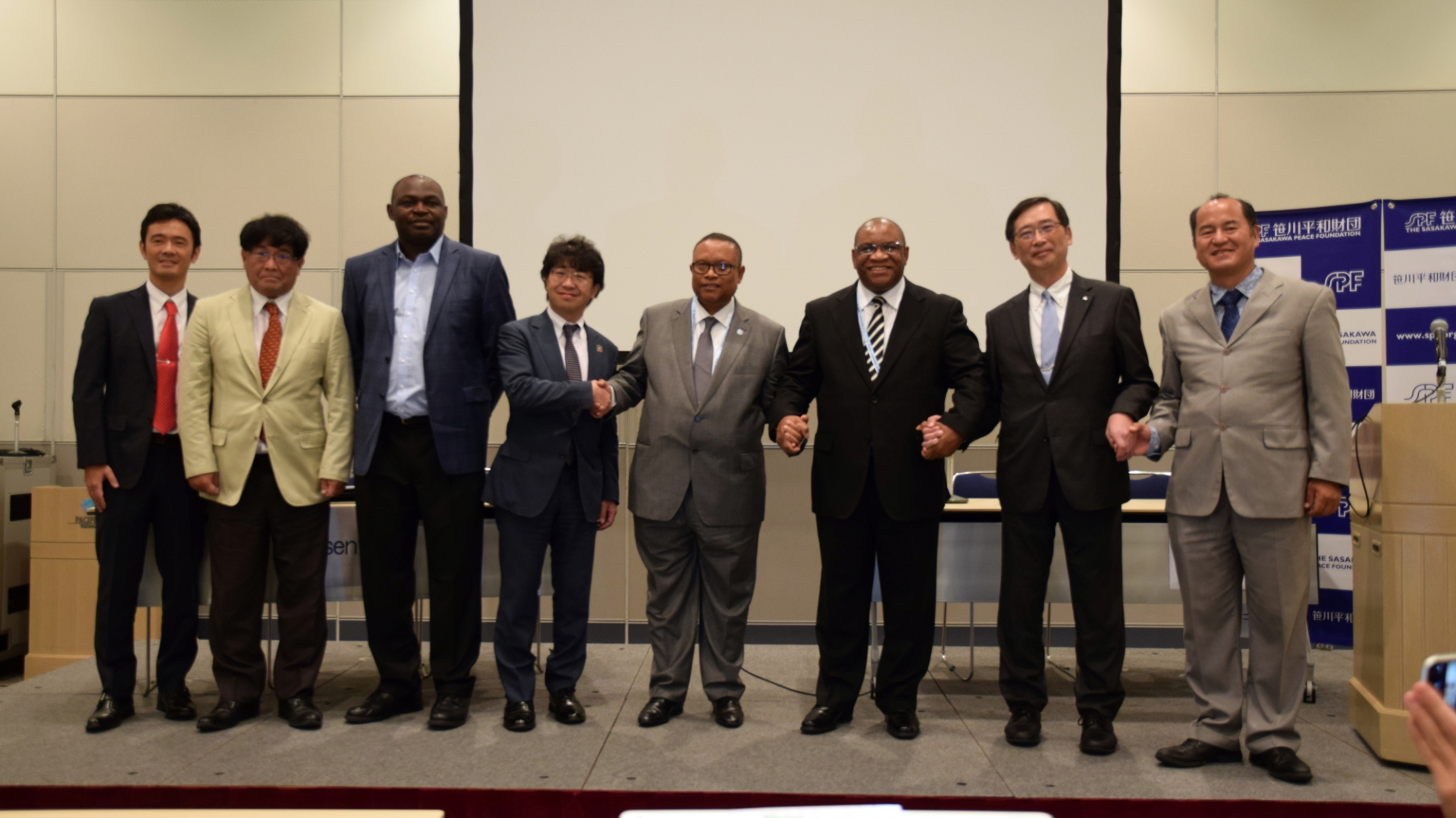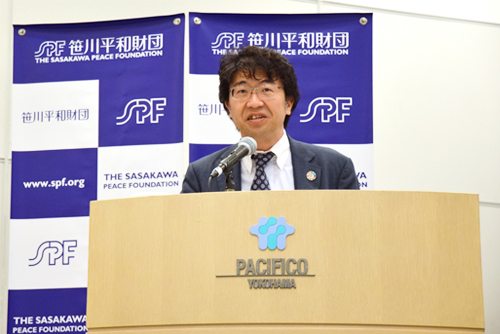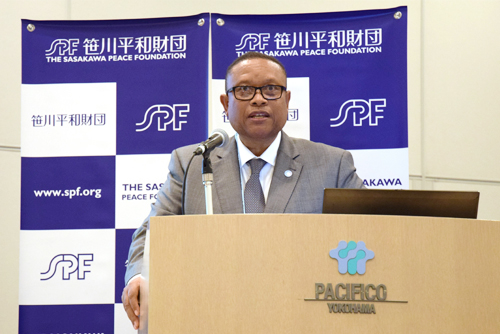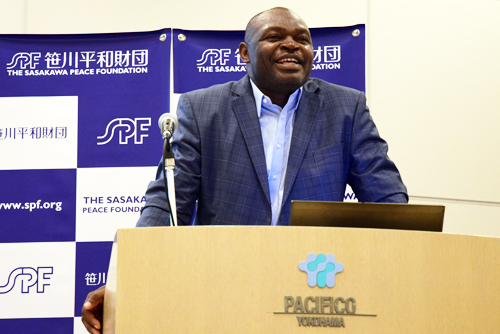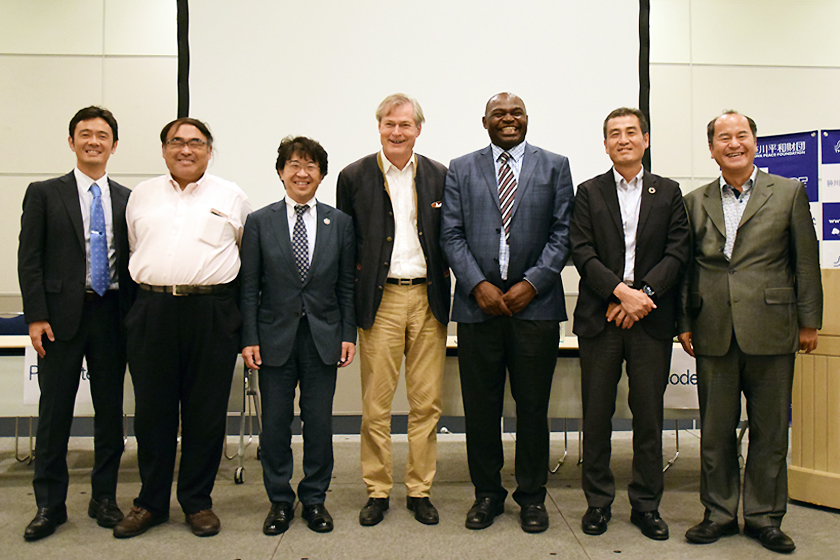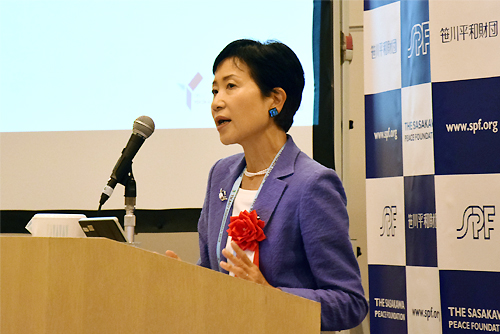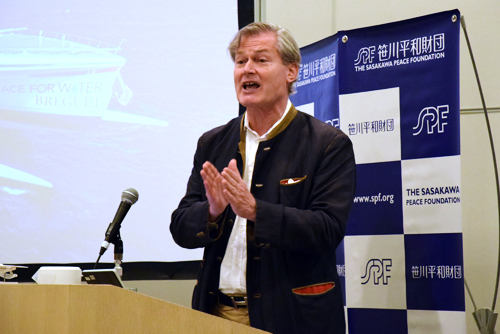OPRI’s second side event at TICAD 7 focused on the latest developments in blue carbon and explored potential avenues for international collaboration. With increasing momentum behind international commitments to slow rising global temperatures, the conservation of blue carbon ecosystems, which house vast quantities of carbon emissions, are increasingly viewed as a critical aspect of climate policy.
“African countries have a great potential in blue carbon,” said Dr. Sunami to open the second side event, noting that while Africa has extensive mangrove, seagrass, and seaweed ecosystems, overuse and exploitation in the pursuit of short-term economic gains at times has blocked progress toward conservation. “Wise and sustainable use of blue carbon ecosystems would benefit local coastal communities while addressing climate mediation at the same time,” he continued.
OPRI Senior Research Fellow Mr. Masanori Kobayashi, who acted as moderator, continued by outlining recent OPRI activities related to blue carbon, including active participation in global policy dialogues such as the UN Framework Convention on Climate Change (UNFCCC)/COP24 in Poland in 2018, and a variety of case studies including seagrass restoration projects in the town of Hinase in Bizen city, Okayama prefecture, which produced environmental as well as socio-economic benefits to the local community.
During the session’s keynote address, Dr. Naoko Ishii, CEO and Chairperson of the Global Environment Facility (GEF), noted that the public awareness about climate change and the critical role of marine ecosystems in storing carbon has reached new highs, giving scientists and policymakers a chance to capitalize on the growing momentum. “We all know that scientists continue to send alarm bells to the global community,” said Dr. Ishii. “It’s really important for this community to translate this message from science into concrete actions on the ground.”
